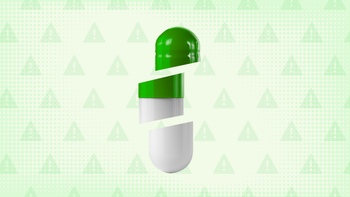
Which SSRI Antidepressants Have the Least Side Effects? How to Find the Best One for You
Key takeaways:
There is no one selective serotonin reuptake inhibitor (SSRI) that is best for everyone. They all have pros and cons when it comes to side effects. For many people, SSRI side effects go away within the first few weeks.
Celexa (citalopram) and Lexapro (escitalopram) are usually well tolerated and have fewer medication interactions. But they come with a higher risk of heart rhythm problems.
Prozac (fluoxetine) and Zoloft (sertraline) may have fewer sexual side effects, but there’s not enough evidence yet to say for sure. However, they’re more likely to cause stomach problems like nausea and diarrhea.
All SSRIs can cause a small amount of weight gain, especially if taken for more than a few months. Prozac is the least likely to cause weight gain. Paxil is the most likely.
Table of contents

Selective serotonin reuptake inhibitors (SSRIs) are antidepressant medications that treat depression, anxiety, and other mental health conditions. They’re usually first-choice treatment options because they have fewer side effects than older types of antidepressants.
Even though SSRIs are often well tolerated, they can still cause side effects. But is there one SSRI that has the least side effects? Let’s take a look.
What are the common side effects of SSRIs?
Before we discuss which SSRI is least likely to cause side effects, you should know that all SSRIs can cause some side effects. They’re often worse when you first start the medication or after your dose is raised. Talk to your healthcare provider if side effects persist or are severe.
Search and compare options
Common SSRI side effects include:
Nausea
Vomiting
Diarrhea
Headaches
Dry mouth
Sexual problems
Fatigue
Insomnia
Dizziness
Though it’s rare, SSRIs can also have serious side effects. Get medical help if you experience:
Changes in heart rhythm (fast heartbeat, feeling lightheaded, or fainting)
Serotonin syndrome (sweating, confusion, high fever)
What are the most commonly prescribed SSRIs?
There are several FDA-approved SSRIs available. The top five most prescribed are:
Zoloft (sertraline)
Lexapro (escitalopram)
Prozac (fluoxetine)
Celexa (citalopram)
Paxil (paroxetine)
Which SSRI antidepressants have the least side effects?
All SSRIs can cause the common side effects listed above. But some may be less likely to cause certain ones. Here are the pros and cons of four SSRIs that stand out from the crowd when it comes to having fewer side effects.
Is your medication working? Sometimes it can be hard to tell if your antidepressant is working. Learn about signs that your SSRI medication is effective — and what to do if you don’t think it’s working.
Risky drug interactions: Sometimes, side effects can be caused or worsened by drug interactions. Check your medication list against these common SSRI interactions and consider other antidepressant options if needed.
Explore antidepressant options: SSRIs might not be the best fit for you. Read our guide to the most common types of antidepressants and how they work.
1. Celexa
Overall, Celexa seems to be one of the best-tolerated SSRIs for many people. It tends to cause less weight gain and may have a lower risk of causing insomnia than some SSRIs. It also has fewer drug interactions, which can be helpful if you’re taking other medications.
However, compared to other SSRIs, Celexa has a higher risk of QT prolongation, a rare but potentially dangerous change to your heartbeat. This risk increases with higher doses. That's why it’s important to use the lowest effective dose of Celexa. And if you have any heart conditions, it may be best to avoid Celexa altogether.
Talk to your healthcare provider about the safest antidepressants for you. They can help you determine if the benefits of taking Celexa outweigh the risks.
Read more like this
Explore these related articles, suggested for readers like you.
2. Lexapro
Lexapro is closely related to Celexa. It seems to be less likely to cause nausea than some SSRIs. Like Celexa, it also has fewer medication interactions than other SSRIs.
However, some studies suggest that Lexapro might cause more headaches. And, like Celexa, it comes with a higher risk of QT prolongation, though that risk is likely lower with Lexapro than it is with Celexa.
3. Prozac
Prozac causes less weight gain than other SSRIs. Some people may even lose weight during the first few months of treatment (although they usually regain that weight over time). Prozac is also the SSRI that is least likely to cause nausea and stomach upset. There’s also some weak evidence that Prozac is less likely to cause sexual side effects. And it is less likely than other SSRIs to cause discontinuation side effects when you stop taking it.
But Prozac comes with some downsides, too. It may be more likely to cause bleeding than some SSRIs. And it might cause sleep problems, such as waking up at night. Prozac can also make some people feel more anxious and restless.
4. Zoloft
For decades, Zoloft has remained one of the most commonly prescribed antidepressants. There’s some weak evidence that Zoloft, like Prozac, is less likely to cause sexual side effects. But it’s also the SSRI that’s most likely to cause diarrhea and other stomach side problems. Like Prozac, it can cause sleep problems. And Zoloft also has a higher risk of bleeding than some SSRIs.
Do all SSRIs cause weight gain and sexual side effects?
When it comes to weight gain or sexual difficulties, keep in mind that mental health conditions can sometimes contribute to these symptoms. It can be hard to determine if your medication is the main cause. Here’s what we know about SSRIs and these two side effects:
Weight gain
Weight gain from SSRIs seems more likely to happen in people who don’t have a healthy diet, those who smoke, and those who are sedentary. And it seems to be a side effect that happens gradually over time. Prozac seems to cause the least amount of weight gain, while Paxil seems to cause the most weight gain.
Sexual side effects
All SSRIs can cause sexual side effects, including problems having an orgasm and erectile dysfunction (ED). About 1 out of every 2 people who take SSRIs will have sexual side effects. Sometimes these side effects will fade over time, as your body adjusts to the medication. But the higher your SSRI dose, the more likely you are to experience sexual side effects. Though all SSRIs can cause sexual problems, Paxil has the highest risk.
How do you choose the best SSRI?
Different SSRIs will be better for different people. Each SSRI has unique pros and cons that need to be considered. Talk to your healthcare provider about your treatment plan and which side effects concern you most.
To help you think about your options, here’s a quick summary of the likelihood of certain side effects with different SSRIs:
SSRI | Sexual problems | Insomnia | Nausea and diarrhea | Weight gain |
Prozac | Moderate | Low | Very low | None |
Celexa | Moderate | Very low | Very low | Very low |
Lexapro | Moderate | Very low | Very low | Very low |
Zoloft | Moderate | Low | Low | Very low |
Paxil | High | Very low | Very low | Low |
In addition to side effects, you and your healthcare provider may want to consider:
Do you prefer a liquid or a pill?
Do you take medications that could interact with an SSRI?
Do you have heart problems or other medical conditions?
What symptoms are most bothersome for you?
Is there an SSRI that has worked well for you (or for a parent or sibling) in the past?
Are you pregnant or breastfeeding?
Your provider will take into consideration all of this information — and more — in helping to choose the right SSRI for you. And if you want to learn more about choosing an antidepressant, check out our GoodRx Health article on the key differences between SSRIs.
The bottom line
There is no single SSRI that causes the least side effects. But some may be less likely than others to cause particular side effects. For example, Prozac has a lower risk of weight gain. And there’s some weak evidence that Zoloft and Prozac may have a lower risk of sexual side effects. Paxil has a higher risk of both weight gain and sexual problems.
The best SSRI for you will depend on many factors, including which side effects you’re most concerned about. Your healthcare provider can help you weigh the pros and cons of each SSRI to find the best fit for you.
Why trust our experts?



References
Adams, S. M., et al. (2008). Pharmacologic management of adult depression. American Family Physician.
Agency for Healthcare Research and Quality (AHRQ). (2022). Medical Expenditure Panel Survey (MEPS) 2013-2020. ClinCalc DrugStats Database.
Balon, R. (2006). SSRI-associated sexual dysfunction. The American Journal of Psychiatry.
Beach, S. R., et al. (2013). QTc prolongation, torsades de pointes, and psychotropic medications. Psychosomatics.
Carvalho, A. F., et al. (2016). The safety, tolerability and risks associated with the use of newer generation antidepressant drugs: A critical review of the literature. Psychotherapy and Psychosomatics.
Chu, A., et al. (2022). Selective serotonin reuptake inhibitors. StatPearls.
Edinoff, A. N., et al. (2021). Selective serotonin reuptake inhibitors and adverse effects: A narrative review. Neurology International.
Ferguson, J. M. (2001). SSRI antidepressant medications: Adverse effects and tolerability. The Primary Care Companion to the Journal of Clinical Psychiatry.
Jing, E., et al. (2016). Sexual dysfunction in selective serotonin reuptake inhibitors (SSRIs) and potential solutions: A narrative literature review. The Mental Health Clinician.
Luo, Y., et al. (2020). National prescription patterns of antidepressants in the treatment of adults with major depression in the US between 1996 and 2015: A population representative survey based analysis. Frontiers in Psychiatry.
Reichenpfader, U., et al. (2014). Sexual dysfunction associated with second-generation antidepressants in patients with major depressive disorder: Results from a systematic review with network meta-analysis. Drug Safety.
Telang, S., et al. (2018). Meta-analysis: Second generation antidepressants and headache. Journal of Affective Disorders.
U.S. Food and Drug Administration. (2017). FDA Drug Safety Communication: Revised recommendations for Celexa (citalopram hydrobromide) related to a potential risk of abnormal heart rhythms with high doses.
Wang, Z., et al. (2022). Risks of digestive system side-effects of selective serotonin reuptake inhibitors in patients with depression: A network meta-analysis. Therapeutics and Clinical Risk Management.
Wichniak, A., et al. (2017). Effects of antidepressants on sleep. Current Psychiatry Reports.
Zumin, S., et al. (2017). SSRI antidepressant use potentiates weight gain in the context of unhealthy lifestyles: results from a 4-year Australian follow-up study. BMJ Open.





























